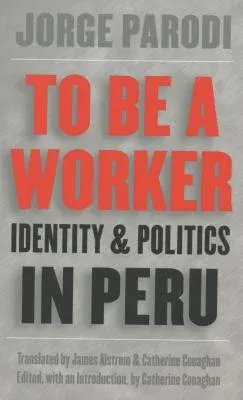Jorge Parodi
(Author)To Be a Worker: Identity and Politics in PeruPaperback, 10 July 2000

Qty
1
Turbo
Ships in 2 - 3 days
In Stock
Free Delivery
Cash on Delivery
15 Days
Free Returns
Secure Checkout
Part of Series
Latin America in Translation/En Traducción/Em Tradução
Part of Series
Latin America in Translation/En Traduccion/Em Traducao
Print Length
200 pages
Language
English
Publisher
University of North Carolina Press
Date Published
10 Jul 2000
ISBN-10
0807848603
ISBN-13
9780807848609
Description
Product Details
Author:
Book Format:
Paperback
Country of Origin:
US
Date Published:
10 July 2000
Dimensions:
23.5 x
14.68 x
1.27 cm
ISBN-10:
0807848603
ISBN-13:
9780807848609
Language:
English
Location:
Chapel Hill
Pages:
200
Publisher:
Series:
Weight:
276.69 gm

